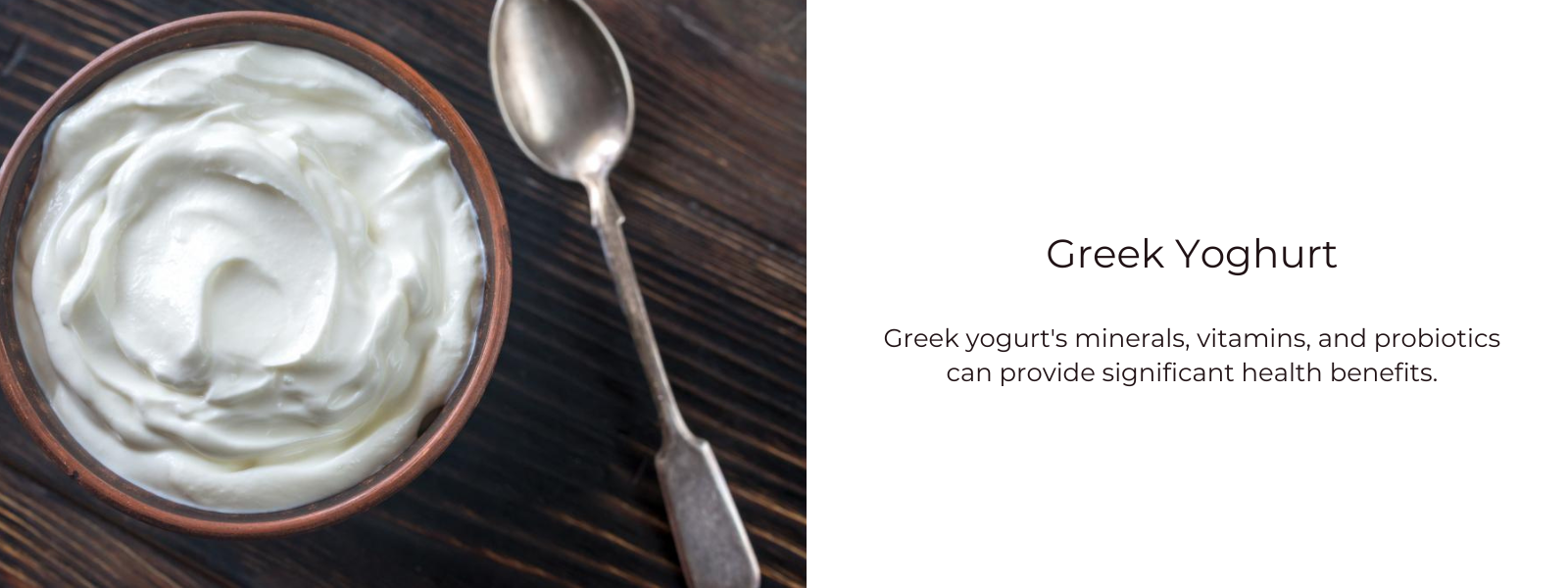Greek yogurt is a delicious and versatile dairy product renowned for its creamy texture, tangy taste, and numerous health benefits. Unlike regular yogurt, Greek yogurt undergoes a straining process to remove excess whey, resulting in a thicker consistency and higher protein content. What sets Greek yogurt apart as a low-GI dairy option is its ability to cause a gradual and controlled increase in blood sugar levels after consumption. With its low glycemic index, Greek yogurt is an excellent choice for individuals seeking to manage their blood sugar levels effectively. Rich in protein, Greek yogurt promotes satiety, aids in weight management, and contributes to stable blood sugar regulation. Furthermore, its probiotic content supports gut health and digestion, enhancing overall metabolic well-being.
Table of Contents
What Is Yogurt?
Greek yogurt is a type of yogurt that has been strained to remove most of its whey, resulting in a thicker, creamier texture compared to regular yogurt. This straining process also reduces the yogurt's lactose content and increases its protein concentration. Greek yogurt typically contains about twice as much protein as regular yogurt, making it a popular choice for individuals seeking to boost their protein intake. It has a tangy flavor similar to that of traditional yogurt but with a denser consistency. Greek yogurt can be enjoyed on its own, used as a creamy topping or dip, or incorporated into various recipes such as smoothies, dressings, and baked goods. It is available in both full-fat and low-fat varieties to suit different dietary preferences.
Greek Yogurt: A Delicious Low-GI Dairy Option
Greek yogurt is a popular dairy product known for its creamy texture, tangy flavor, and versatility in cooking and baking. Unlike regular yogurt, Greek yogurt undergoes a straining process to remove excess whey, resulting in a thicker consistency and higher protein content. This nutrient-rich dairy option is not only delicious but also offers several health benefits, particularly for individuals seeking to manage their blood sugar levels.
One of the key advantages of Greek yogurt is its low glycemic index (GI), which measures how quickly carbohydrates in food raise blood sugar levels. With its low GI, Greek yogurt causes a slower and more gradual increase in blood sugar levels after consumption compared to higher GI foods. This makes it a suitable choice for individuals with diabetes or those looking to maintain stable blood sugar levels.
In addition to its low GI, Greek yogurt is also rich in protein, which helps promote satiety and regulates appetite, making it an excellent option for weight management and blood sugar control. The protein content in Greek yogurt also contributes to its slower digestion and absorption rate, further aiding in blood sugar regulation.
Furthermore, Greek yogurt contains probiotics, beneficial bacteria that support gut health and digestion. A healthy gut microbiome is linked to better blood sugar control and overall metabolic health, making Greek yogurt a valuable addition to a balanced diet.
When incorporating Greek yogurt into meals and snacks, opt for plain, unsweetened varieties to avoid added sugars and artificial flavors. Enjoy it on its own, or use it as a creamy base for smoothies, dips, dressings, and desserts. By including Greek yogurt as part of a low-GI diet, individuals can enjoy its delicious taste and reap the health benefits it offers for blood sugar management and overall well-being.
Is Greek Yogurt Good For Diabetes?
Greek yogurt can be a beneficial option for individuals with diabetes when incorporated into a balanced diet. Its low glycemic index (GI), which measures the impact of carbohydrates on blood sugar levels, makes it a favorable choice for blood sugar management. Greek yogurt causes a slower and more gradual increase in blood sugar levels compared to higher GI foods, helping to prevent spikes and crashes in blood glucose levels. Additionally, Greek yogurt is rich in protein, which promotes satiety, aids in weight management, and contributes to stable blood sugar regulation. Its lower lactose content also makes it easier to digest for individuals with lactose intolerance. However, it's important to choose plain, unsweetened Greek yogurt to avoid added sugars, and portion control is key to managing carbohydrate intake.
How Is Greek Yogurt Different From Regular Yogurt?
Greek yogurt differs from regular yogurt primarily in its texture, protein content, and production process. Here are some key differences:
- Texture: Greek yogurt is thicker and creamier compared to regular yogurt. This is because it undergoes a straining process to remove most of the whey, resulting in a denser consistency.
- Protein Content: Greek yogurt contains more protein than regular yogurt. This is because the straining process removes excess liquid, concentrating the protein content. On average, Greek yogurt contains about twice as much protein as regular yogurt.
- Fat and Calories: Greek yogurt tends to be lower in fat and calories compared to regular yogurt, especially if you choose the non-fat or low-fat varieties. However, the exact nutritional profile can vary depending on the brand and type of yogurt.
- Lactose Content: The straining process also reduces the lactose content of Greek yogurt, making it more suitable for individuals with lactose intolerance.
-
Taste: While both Greek yogurt and regular yogurt have a tangy flavor, Greek yogurt often has a slightly milder taste due to the removal of whey.
Healthy Ways To Use Greek Yogurt:
Greek yogurt is a versatile ingredient that can be used in various healthy and delicious ways. Here are some ideas:
- Smoothies: Blend Greek yogurt with fruits like berries, bananas, or mangoes, along with leafy greens and a splash of almond milk or juice for a creamy and nutritious smoothie.
- Parfaits: Layer Greek yogurt with granola, fresh fruits, and a drizzle of honey or maple syrup for a satisfying and nutrient-rich breakfast or snack.
- Salad Dressings: Use Greek yogurt as a base for homemade salad dressings. Combine it with lemon juice, olive oil, herbs, and spices for a creamy and tangy dressing that's lower in calories than traditional creamy dressings.
- Dips: Make creamy and flavorful dips by mixing Greek yogurt with herbs, garlic, lemon juice, and spices. Serve with fresh vegetables or whole-grain crackers for a nutritious snack.
- Marinades: Use Greek yogurt as a marinade for meats, poultry, or tofu. Its acidity helps tenderize the protein while adding moisture and flavor. Combine Greek yogurt with herbs, spices, and citrus juice for a flavorful marinade.
- Baking: Substitute Greek yogurt for sour cream or mayonnaise in baking recipes to reduce fat and increase protein content. It adds moisture and richness to baked goods like muffins, cakes, and bread.
- Frozen Treats: Make healthier frozen treats by blending Greek yogurt with fruits and a touch of honey or maple syrup. Pour the mixture into popsicle molds and freeze for a refreshing and nutritious dessert.









Leave a comment